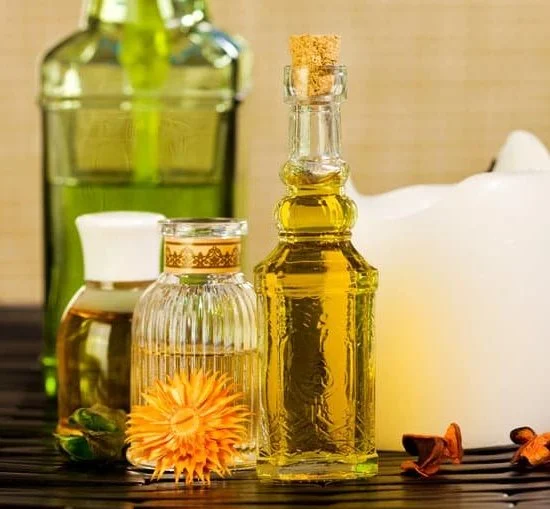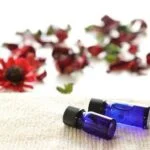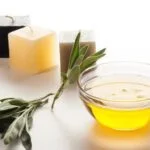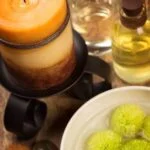Why is aromatherapy good? Aromatherapy is a holistic healing treatment that uses natural plant extracts to promote health and well-being. In this article, we will explore the history, benefits, and science behind aromatherapy, as well as how to incorporate it into your daily life. From its ancient origins to modern practices, aromatherapy has been known for its psychological and physical benefits, making it a popular alternative medicine in today’s society.
Aromatherapy has been used for centuries across different cultures around the world. The use of aromatic substances for healing can be traced back thousands of years, with records showing its presence in ancient Egypt, China, and India. By understanding the historical roots of aromatherapy, we can appreciate how it has evolved and adapted over time to become a widely recognized practice in modern times.
Aromatherapy oils play a crucial role in this practice. Different essential oils have various benefits that can aid in relaxation, stress relief, pain management, and even skin rejuvenation. Understanding these oils and their properties is essential when using aromatherapy for therapeutic purposes. We will delve into the specific benefits of popular essential oils and how they contribute to overall well-being.
The History of Aromatherapy
Aromatherapy has a long and rich history, dating back thousands of years. Many ancient civilizations, including the Egyptians, Greeks, and Romans, used aromatic plant oils for various purposes, such as religious rituals, medical treatments, and personal care. Here are some key points about the history of aromatherapy:
- Ancient Cultures: The use of aromatic plants for healing and well-being can be traced back to ancient cultures. The Egyptians were known to use essential oils in their embalming process and for medicinal purposes. In Greece, the physician Hippocrates documented the use of aromatic fumigations to purify the air and prevent disease.
- Middle Ages: During the Middle Ages, fragrant plants were used to combat infectious diseases such as the plague. The practice of using botanical oils for medicinal purposes continued to evolve during this time period.
- Modern Aromatherapy: The term “aromatherapy” was coined in the 20th century by French chemist René-Maurice Gattefossé. He accidentally discovered the healing properties of lavender oil when he used it to treat a burn on his hand. This led to further research into the therapeutic benefits of essential oils.
The history of aromatherapy demonstrates that the use of aromatic plant oils has been a part of human civilization for centuries, with its roots deeply intertwined with various cultures and traditions. Today, aromatherapy continues to be a popular practice that offers a holistic approach to health and wellness.
Understanding Aromatherapy Oils and Their Benefits
Aromatherapy oils have been used for centuries for their various therapeutic properties. These essential oils are derived from plants, flowers, herbs, and other natural sources, and each type of oil has its own unique set of benefits. Lavender, for example, is known for its calming and relaxing effects, while peppermint is often used to promote alertness and mental clarity.
One of the key aspects of understanding aromatherapy oils is knowing how they can be used to address different health concerns. For example, eucalyptus oil is commonly used to relieve respiratory issues such as coughs and congestion, while tea tree oil is known for its antibacterial and antifungal properties. By understanding the specific benefits of different aromatherapy oils, individuals can tailor their use of these oils to address their specific needs.
It’s important to note that aromatherapy oils should be used with caution and in the appropriate dilution. Some oils can cause skin irritation or allergic reactions if applied directly to the skin without being mixed with a carrier oil.
Additionally, some oils should not be ingested or used by certain individuals, such as pregnant women or those with certain medical conditions. It’s always best to consult a qualified aromatherapist or healthcare professional before using essential oils for therapeutic purposes.
| Aromatherapy Oil | Benefits |
|---|---|
| Lavender | Calming and relaxing effects |
| Peppermint | Promotes alertness and mental clarity |
| Eucalyptus | Relieves respiratory issues such as coughs and congestion |
| Tea Tree |
The Science Behind Aromatherapy
Aromatherapy has been used for centuries as a natural way to promote health and well-being. While some may dismiss it as simply a pleasant smell, there is actual science behind the effectiveness of aromatherapy in improving physical and mental health.
How Aromatherapy Works
Aromatherapy works through the sense of smell. When essential oils are inhaled, the odor molecules travel through the nose and affect the brain through a variety of receptor sites, one of which is the limbic system, commonly referred to as the “emotional brain.” This area of the brain is directly connected to those parts that control heart rate, blood pressure, breathing, memory, stress levels, and hormone balance.
The Role of Essential Oils
Essential oils are highly concentrated plant extracts that retain the natural smell and flavor or “essence” of their source. These oils have been used for centuries in various cultures for medicinal and health purposes. The specific chemical makeup of each oil gives it unique therapeutic properties which can be utilized to address a variety of ailments.
Scientific Studies on Aromatherapy
Numerous studies have been conducted to examine the impact of aromatherapy on various conditions such as anxiety, depression, insomnia, pain management, and cognitive function. Research has shown that certain essential oils have potent anti-inflammatory and antioxidant effects when applied topically or inhaled. There is also evidence to suggest that certain scents can help reduce stress hormones and increase relaxation responses in the body.
Understanding the science behind aromatherapy can help individuals make informed decisions about incorporating it into their daily lives for overall wellness. By leveraging its natural benefits through essential oils, individuals may experience relief from physical discomforts or emotional distresses with potentially fewer side effects than traditional medical treatments.
The Psychological Benefits of Aromatherapy
Aromatherapy has been found to have numerous psychological benefits, making it a popular practice for promoting mental well-being. One of the main benefits of aromatherapy is its ability to reduce stress and anxiety. Certain essential oils such as lavender, rose, and chamomile have calming properties that can help alleviate feelings of tension and promote relaxation. Studies have shown that inhaling these scents can lower the levels of cortisol, also known as the stress hormone, in the body.
In addition to stress reduction, aromatherapy has also been found to improve mood and uplift spirits. Scents like citrus, peppermint, and eucalyptus are known for their invigorating and energizing effects. These essential oils can help combat feelings of depression and fatigue, leaving individuals feeling more positive and revitalized. Aromatherapy can be especially beneficial for individuals dealing with chronic stress or depression, providing a natural and holistic approach to improving mental health.
Furthermore, aromatherapy has been used as a complementary treatment for various psychological conditions such as insomnia and PTSD. The soothing effects of certain essential oils can help promote better sleep quality by creating a relaxing environment conducive to rest.
Additionally, the use of aromatherapy in conjunction with traditional therapy has shown promising results in managing symptoms of PTSD by providing a sense of calmness and stability. With its potential to positively impact mental health, aromatherapy continues to be an appealing option for individuals seeking natural ways to support their emotional well-being.
| Psychological Benefit | Examples of Essential Oils |
|---|---|
| Stress Reduction | Lavender, Rose, Chamomile |
| Mood Improvement | Citrus, Peppermint, Eucalyptus |
| Complementary Treatment | Insomnia (Lavender), PTSD (Frankincense) |
The Physical Benefits of Aromatherapy
Aromatherapy has been known for its physical benefits for centuries, with many people turning to essential oils to alleviate various physical ailments. Whether it’s to relieve headaches, ease muscle pain, or improve skin conditions, aromatherapy oils have proven to be beneficial in promoting physical well-being.
Relief From Pain and Inflammation
Certain essential oils, such as lavender, peppermint, and eucalyptus, have been found to have analgesic and anti-inflammatory properties. When applied topically or inhaled through aromatherapy practices, these oils can help reduce pain and inflammation associated with conditions like arthritis, muscle soreness, and headaches.
Support for Respiratory Health
Aromatherapy oils like tea tree, eucalyptus, and lemon are known for their ability to support respiratory health. Inhaling the vapors of these essential oils can help clear congested airways, ease breathing difficulties, and provide relief from symptoms of respiratory infections like colds and flu.
Promotion of Skin Health
When used in skincare products or through topical application, certain essential oils can help address various skin issues. For example, tea tree oil is known for its antibacterial properties that can aid in treating acne and improving overall skin health. Lavender oil is also popular for its soothing properties that can help calm irritated skin and reduce redness.
Incorporating aromatherapy into daily routines can be a natural way to address physical concerns while enhancing overall well-being. While the psychological benefits of aromatherapy are valuable on their own, the added advantage of physical relief makes it a holistic approach to maintaining health.
How to Use Aromatherapy in Daily Life
Aromatherapy, although it may seem like a complex practice, can actually be easily incorporated into daily life. There are several simple and effective ways to use aromatherapy to improve your well-being and overall mood.
One of the most common ways to utilize aromatherapy in daily life is through the use of essential oils in a diffuser. By adding a few drops of your favorite essential oil to a diffuser, you can fill your home or workspace with delightful scents that can have a positive impact on your mental and emotional state.
Another way to incorporate aromatherapy into your daily routine is by using essential oils for personal care. For example, adding a few drops of lavender or eucalyptus oil to your bath can create a relaxing and rejuvenating experience. Similarly, mixing a few drops of essential oil with a carrier oil like coconut or sweet almond oil can create a soothing massage blend that can help relieve stress and tension.
Furthermore, incorporating aromatherapy into your daily life can be as simple as creating personalized inhalers or room sprays using essential oils. These convenient options allow you to bring the benefits of aromatherapy with you wherever you go, whether it’s in the form of an energizing inhaler for moments of fatigue or a calming room spray for stressful environments.
Overall, making aromatherapy part of your daily routine is not only easy but can also provide numerous benefits for both your physical and mental well-being.
Aromatherapy Techniques and Practices
Aromatherapy involves using essential oils to promote overall well-being, and there are several techniques and practices to make the most out of this holistic approach. Here are some popular methods used in aromatherapy:
- Diffusion: One of the most common ways to use essential oils is through diffusion. This method involves dispersing the aroma of the oil into the air, allowing it to be inhaled and absorbed by the body.
- Massage: Aromatherapy massage combines the benefits of touch therapy with the therapeutic properties of essential oils. The oils are diluted in a carrier oil and applied to the skin through gentle massage techniques.
- Inhalation: Inhaling essential oils directly from the bottle or by adding a few drops to a bowl of hot water can provide quick relief for respiratory issues or serve as a mood-booster.
- Baths: Adding a few drops of essential oil to bathwater can create a relaxing and rejuvenating experience. The warm water helps to release the aroma of the oil while providing a calming effect on both body and mind.
Practicing these techniques not only allows individuals to enjoy the aromatic scents but also provides various health benefits that can enhance their overall quality of life. Whether seeking relaxation, stress relief, improved sleep, or simply elevating one’s mood, aromatherapy offers a range of techniques suitable for different preferences and needs.
Aromatherapy Safety Precautions and Tips
When using aromatherapy, it is important to take certain safety precautions to ensure that you are using essential oils in a way that is safe and beneficial for your health. One of the most important safety tips for using aromatherapy oils is to always dilute them before applying them to the skin.
This helps to prevent any potential skin irritation or allergic reactions. It is also crucial to do a patch test on a small area of skin before using any new essential oil, as some people may be more sensitive or allergic to certain oils.
Another important safety precaution when using aromatherapy is to be mindful of the potential for essential oils to cause harm if ingested. Essential oils are highly concentrated and can be toxic if ingested in large quantities. It is essential to keep all essential oils out of reach of children and pets, as they may mistakenly ingest them. In addition, it is important to avoid getting essential oils in your eyes or mucous membranes, as this can cause irritation and discomfort.
It is also recommended to store essential oils properly in dark glass bottles and in a cool, dark place, away from sunlight and heat. This helps to preserve the quality and potency of the oils over time.
Lastly, when using aromatherapy with pregnant women, young children, or individuals with specific medical conditions, it is best to consult with a qualified healthcare professional before using any essential oil. Taking these safety precautions will help you enjoy the benefits of aromatherapy while keeping yourself and others safe from any potential risks associated with its use.
Overall, by following these safety precautions and tips when using aromatherapy, you can reap the many benefits of this holistic practice while ensuring that you are doing so safely and responsibly.
Conclusion
In conclusion, the power of aromatherapy is undeniable. Throughout history, people have turned to the use of essential oils for their various physical and psychological benefits. The science behind aromatherapy has shown that these natural oils can have a positive impact on mood, stress levels, and overall well-being.
The psychological benefits of aromatherapy are vast, with essential oils being used to reduce anxiety, promote relaxation, and improve mental clarity. Additionally, the physical benefits of aromatherapy cannot be ignored. From relieving headaches to easing muscle tension, the use of essential oils has been shown to have a positive impact on our physical health.
Incorporating aromatherapy into daily life can be simple yet effective. From diffusing essential oils in your home to adding them to bathwater or massage oil, there are numerous ways to experience the benefits of aromatherapy firsthand. However, it is important to always practice caution and follow safety precautions when using essential oils. Overall, the power of aromatherapy lies in its ability to enhance both our physical and mental well-being in a natural and holistic way.
Frequently Asked Questions
What Is the Benefits of Aromatherapy?
Aromatherapy has a range of potential benefits, including stress relief, improved mood, relaxation, and enhanced overall well-being. Some people also use aromatherapy to alleviate certain symptoms such as headaches, insomnia, and muscle pain. The use of essential oils in aromatherapy can also have antimicrobial and antioxidant properties.
How Is Aromatherapy Effective?
Aromatherapy is effective due to the powerful impact of our sense of smell on the brain and body. When we inhale essential oils, the molecules travel to the olfactory system which then sends signals to the limbic system – the part of the brain that controls emotions and memories.
This can lead to immediate changes in mood and can also affect physiological functions such as heart rate, blood pressure, and breathing.
What Are the Pros and Cons of Aromatherapy?
The pros of aromatherapy include its potential to effectively support emotional well-being and relaxation. It can also be used as a complementary therapy alongside conventional medical treatments for certain conditions.
On the other hand, some cons include possible allergic reactions or skin sensitivities to essential oils, especially if they are applied directly to the skin without proper dilution. Additionally, aromatherapy should not be used as a replacement for medical treatment when dealing with serious health issues.

Are you looking for a natural way to improve your health and wellbeing?
If so, aromatherapy may be the answer for you.





